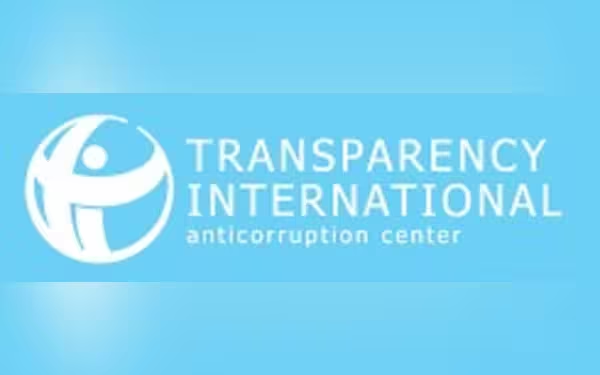Saturday, November 16, 2024 08:37 PM
Transparency International Proposes Carbon Credits Guidelines for Pakistan
- TI Pakistan recommends robust oversight for carbon markets.
- Community involvement is crucial in REDD+ projects.
- A centralized Carbon Registry is essential for transparency.
 Image Credits: jasarat
Image Credits: jasaratTI Pakistan recommends guidelines for carbon credits to enhance transparency and community involvement in combating climate change.
KARACHI: In a significant move towards addressing climate change, Transparency International Pakistan (TI Pakistan) has put forth recommendations for the country’s first Carbon Credits Guidelines. These guidelines are part of a broader Policy Framework for trading in carbon markets, which is currently being developed by the Ministry of Climate Change and Environmental Coordination (MoCC&EC). As the world grapples with the pressing challenges of climate change, Pakistan, being the fifth most vulnerable country to its impacts, stands at a crucial juncture where effective policies can make a substantial difference.
In a letter addressed to the Prime Minister of Pakistan, TI Pakistan has raised concerns regarding the integrity, transparency, and accountability risks associated with carbon markets. The organization emphasizes that as Pakistan formulates its inaugural policy guidelines for trading in carbon markets, it is imperative to incorporate robust oversight and transparency measures that align with global best practices. This is not just a bureaucratic necessity; it is a moral obligation to ensure that the benefits of carbon trading reach the communities that need them the most.
TI Pakistan commends the federal government’s initiative to develop the 2024 policy guidelines for trading in carbon markets. The organization highlights that these markets can serve as vital economic incentives for Pakistan to reduce greenhouse gas emissions, as outlined in Article 6 of the Paris Agreement. By leveraging carbon markets, Pakistan can work towards fulfilling its Nationally Determined Contributions (NDCs) set in 2021, which aim to combat climate change while promoting sustainable development.
To mitigate potential integrity risks in carbon credits and offset projects, TI Pakistan has proposed several key recommendations. Firstly, they suggest that the MoCC&EC establish governance measures to oversee the carbon credits market. This includes ensuring that the verification of carbon credit projects is independent of the project developers to prevent conflicts of interest. A mechanism similar to the PPRA Rule 7 (Integrity Pact) should be implemented, which would impose sanctions on any project approving agencies or intermediaries involved in corrupt practices.
Secondly, TI Pakistan emphasizes the importance of local community participation in REDD+ projects. The guidelines should ensure that local communities are actively involved and benefit from these initiatives. Establishing a “Benefit Sharing Mechanism” is crucial to guarantee equitable financial and social benefits, focusing on infrastructure development, access to clean energy, and overall community growth.
Furthermore, the organization calls for the establishment of an effective oversight mechanism by the Climate Change Authority to ensure environmental integrity within the carbon market. This body should be responsible for validating the quality of carbon credits and monitoring the approval and implementation of climate finance projects, ensuring accurate accounting of all carbon emissions, savings, and removals.
Another vital recommendation is the creation of a centralized “Carbon Registry” by the MoCC&EC. This registry would track and verify carbon offsetting claims through third-party validation, enhancing transparency and allowing communities to monitor carbon credits effectively. Additionally, the guidelines should incorporate Whistleblower Protection Mechanisms to encourage reporting of corruption without fear of retaliation.
TI Pakistan acknowledges the federal government’s initiatives and expresses hope that these efforts will lead to the effective implementation of the Trading in Carbon Markets framework. The focus on transparency, community involvement, and robust governance is essential to ensure that carbon markets deliver genuine benefits in the fight against climate change and contribute to achieving sustainable development goals for Pakistan.
As Pakistan embarks on this critical journey towards establishing a carbon market, it is vital that all stakeholders remain vigilant and committed to upholding the principles of integrity and transparency. The recommendations put forth by TI Pakistan serve as a roadmap for ensuring that the carbon credits system not only addresses environmental concerns but also uplifts local communities, paving the way for a sustainable and equitable future.













